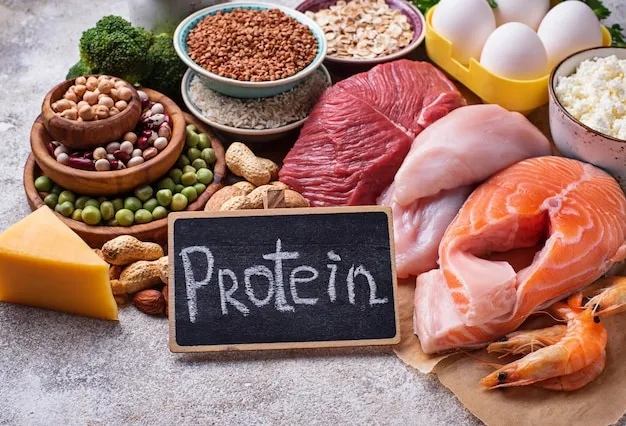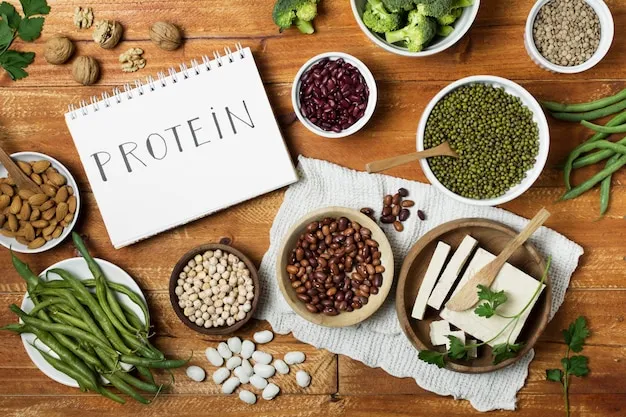Different Types of Proteins

Protein is an essential macronutrient that plays a crucial role in the growth, repair, and maintenance of our bodies. When it comes to meeting our protein needs, there are various types of proteins available, each with its unique characteristics and benefits. In this blog post, we will delve into the world of different types of proteins, exploring their sources, benefits, and how they can support our overall health and fitness goals.
- Whey Protein: The Gold Standard of Protein Supplements

Whey protein is derived from milk and is considered one of the most popular and widely used protein supplements. It is a complete protein, meaning it contains all nine essential amino acids required by the body. Whey protein is easily digestible and quickly absorbed, making it an excellent option for post-workout recovery. It provides essential amino acids to support muscle growth and repair, making it a go-to choice for athletes and fitness enthusiasts.
- Plant-Based Proteins: Nourishing the Body with Nature's Bounty

Plant-based proteins have gained significant popularity in recent years, catering to the growing demand for vegetarian and vegan dietary options.They are sourced from various plant-based foods such as legumes (beans, lentils), grains (quinoa, rice), nuts, and seeds (chia, hemp). Plant-based proteins offer a wide range of nutrients, including fiber, antioxidants, and phytochemicals, contributing to overall health and well-being. Popular plant-based protein options include soy, pea, rice, and hemp protein.
- Casein Protein: A Slow-Release Protein Source

Casein protein is another protein derived from milk, but it differs from whey protein in terms of digestion and absorption. Casein forms a gel-like substance in the stomach, leading to slower digestion and a sustained release of amino acids into the bloodstream. This slow-release property makes casein protein an excellent choice for prolonged periods without food, such as overnight or during fasting. It provides a steady supply of amino acids to support muscle maintenance and prevent muscle breakdown.
- Egg Protein: Nature's Protein Powerhouse

Egg protein is derived from whole eggs or egg whites and is considered a high-quality protein source.It contains all essential amino acids and is rich in branched-chain amino acids (BCAAs) that support muscle recovery and growth. Egg protein is also highly bioavailable, meaning it is easily absorbed and utilized by the body. It offers a viable option for individuals with lactose intolerance or those seeking a dairy-free protein alternative.
Conclusion:
In the quest to meet our protein needs, we have a variety of options to choose from. Whey protein stands as the gold standard of protein supplements, delivering essential amino acids and aiding muscle recovery. Plant-based proteins offer a nutrient-rich alternative, nourishing the body with nature's bounty and catering to dietary preferences. Casein protein provides a slow-release source of amino acids, ideal for sustained muscle support. And finally, egg protein serves as a powerhouse protein source with high bioavailability and a complete amino acid profile. When selecting a protein source, it's essential to consider individual needs, dietary preferences, and health goals. Incorporating different types of proteins into our diets can provide a diverse range of nutrients and support our overall health and fitness aspirations. Whether it's whey protein, plant-based proteins, casein protein, or egg protein, embracing the variety of protein sources ensures that we have ample options to meet our protein requirements and lead a balanced and nourishing lifestyle.
References:
Phillips, S. M., & Van Loon, L. J. (2011). Dietary protein for athletes: From requirements to optimum adaptation. Journal of Sports Sciences, 29(Suppl 1), S29-S38.
Gorissen, S. H., & Witard, O. C. (2018). Characterizing the muscle anabolic potential of dairy, meat and plant-based protein sources in older adults. Proceedings of the Nutrition Society, 77(1), 20-31.
Socha, P., et al. (2015). European Journal of Pediatrics, 174(2), 141-150.
Hoffman, J. R., et al. (2007). International Journal of Sport Nutrition and Exercise Metabolism, 17(3), 259-274.



